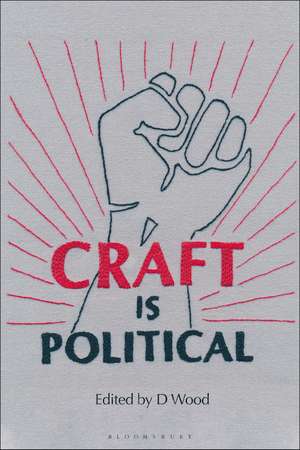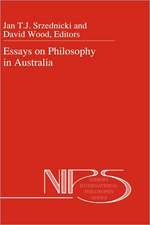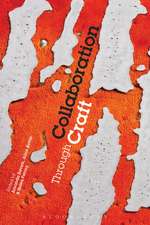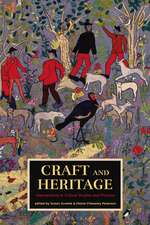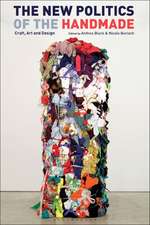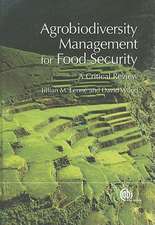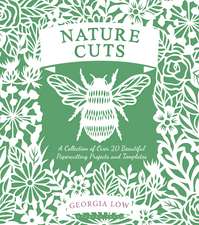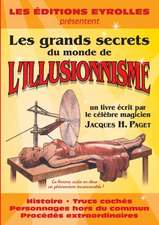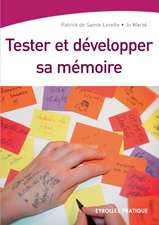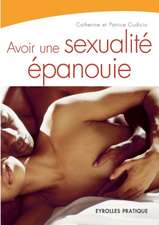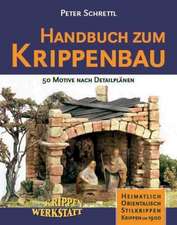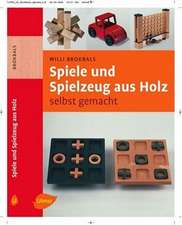Craft is Political
Autor D. Wooden Limba Engleză Hardback – 19 mai 2021
| Toate formatele și edițiile | Preț | Express |
|---|---|---|
| Paperback (1) | 172.59 lei 3-5 săpt. | +53.83 lei 7-11 zile |
| Bloomsbury Publishing – 8 feb 2023 | 172.59 lei 3-5 săpt. | +53.83 lei 7-11 zile |
| Hardback (1) | 570.43 lei 6-8 săpt. | +122.34 lei 7-11 zile |
| Bloomsbury Publishing – 19 mai 2021 | 570.43 lei 6-8 săpt. | +122.34 lei 7-11 zile |
Preț: 570.43 lei
Preț vechi: 816.91 lei
-30% Nou
Puncte Express: 856
Preț estimativ în valută:
109.15€ • 113.97$ • 90.13£
109.15€ • 113.97$ • 90.13£
Carte tipărită la comandă
Livrare economică 15-29 aprilie
Livrare express 11-15 martie pentru 132.33 lei
Preluare comenzi: 021 569.72.76
Specificații
ISBN-13: 9781350122260
ISBN-10: 1350122262
Pagini: 280
Ilustrații: 20 bw illus
Dimensiuni: 156 x 234 x 20 mm
Greutate: 0.59 kg
Editura: Bloomsbury Publishing
Colecția Bloomsbury Visual Arts
Locul publicării:London, United Kingdom
ISBN-10: 1350122262
Pagini: 280
Ilustrații: 20 bw illus
Dimensiuni: 156 x 234 x 20 mm
Greutate: 0.59 kg
Editura: Bloomsbury Publishing
Colecția Bloomsbury Visual Arts
Locul publicării:London, United Kingdom
Caracteristici
Impressive spread of contributors and case studies from Australia, China, Egypt, Finland, New Zealand, Pakistan, Taiwan, Timor-Leste, Turkey and other countries
Notă biografică
D Wood is an independent craft and design scholar based in Canada.
Cuprins
AcknowledgementsList of FiguresIntroduction: Re-Crafting an Unsettled World, D Wood (OCAD, Canada)Part 1: Craft Legacy1. Politics of Tea Furniture: Invention of Ryurei Style in Late Nineteenth Century Japan, Yasuko Suga (Tsuda University, Japan)2. (Dis)playing Politics: Craft and the Caughnawaga Exhibition, 1883, Lisa Binkley (Dalhousie University, Canada)3. Indigenous Craft is Political: Making and Remaking Coloniser-Colonised Relations in Taiwan, Geoffrey Gowlland (Museum of Cultural History and the University of Oslo, Norway)4. Co-existence of Craft and Design in Turkey as Two Separate Epistemes, Cigdem Kaya (Istanbul Technical University, Turkey)5. Leisure and Livelihood: A Socio-economic Reading of Craft in Australia and Egypt, Anne-Marie Willis (Independent Scholar, Australia)Part 2: Craft Practice6. The Politics of Craft and Working Without Skill: Reconsidering Craftsmanship and the Community of Practice, Alanna Cant (University of Reading, UK)7. From 'Making Flowers' to Imagining Futures: Rohingya Refugee Women Innovate a Heritage Craft, Lurdes Macedo (International Organization for Migration, Lusophone University of Porto and University of Minho, Portugal), David Palazón (International Organization for Migration, Bangladesh), Shahirah Majumdar (Rohingya Cultural Memory Centre, International Organization For Migration, Bangladesh) and Verity Marques (Independent Writer, Portugal)8. Liminality: The Work of Monica Mercedes Martinez, PJ Anderson, and Habiba El-Sayed, Heidi McKenzie (Independent Artist, Canada)9. Jewellery is Political: Ethical Jewellery Practice, Elizabeth Shaw (Griffith University, Australia)10. Networks of Economic Kinship in Aotearoa New Zealand Craft Markets, Fiona P. McDonald (University of British Columbia, Canada)11. It Goes Without Saying: Craft Talks Politics, D Wood (Independent Scholar, Canada)Part 3: Craft World View12. Crafts as the Political: Perspectives on Crafts from Design of the Global South, Fernando Alberto Álvarez Romero (Universidad de Bogotá, Colombia)13. Chilean Arpilleras: Hand-stitched Geographies and the Politics of Everyday Life in Santiago's Poblaciones, Nathalia Santos Ocasio (Queen's University, Canada)14. From Essential Skill to Productive Capital: Perspectives on Policies and Practices of Craft Education in Finland, Anna Kouhia (University of Helsinki, Finland)15. Sincerity not Authenticity: Craft's Political Path Out of a Modernist Trap, Leopold Kowolik (Sheridan College/York University, Canada)16. Bellwether: Fingerprinting Your Woollies, Seema Goel (Independent Artist, Canada)EpilogueAuthor BiosIndex
Recenzii
Craft is Political is craft with teeth bared. No hiding behind the trappings of commercial viability or neutrality in trying to fit in the space between fine art and hobby crafts. The global context of the book is a feat. The book is unapologetically political, words and work honed to a fine point, a needle whose eye the authors expertly thread. A collection of 16 essays and authors from across craft disciplines, the book itself is deceptively small, for all its dense ideas, compact into a slim volume. The text is foliage that catches our eye, and we must follow to the roots, the notes, for further reading.
D. Wood's book gathers together a global chorus of voices that demonstrate the political relevance of craft practice. The practices referenced in Craft is Political range from craftivism to tea ceremony, refugee embroidery, Mexican wood-carving and sheep farming. Underpinning this is a fabric of key theories, including feminism, labour politics, race theory, ethics of care and sustain-ability. This book extends the purpose of the handmade beyond a romantic reaction to industrialisation. It places it at the centre of issues that have global import today, particularly climate change
Craft is Political provides a thought-provoking and much-need global perspective on the political, economic, and social role of craft in the 21st century.
Craft is Political is a compelling book that illuminates the many ways in which craft workers have engaged in forms of activism. The texts included here highlight inspiring moments of resistance, protest and collective production, while also offering thoughtful critical analysis. The book is especially noteworthy for the global perspectives of its contributors, as well as its diversity of practices and conceptual frameworks, which encourage readers to reflect on how craft might help us remake our world in a more ethical manner.
In Craft is Political, D Wood offers a timely, fresh look at the power of craft to critique mainstream culture. Whereas the original theorists of craft such as John Ruskin, William Morris, and Yanagi Soetsu conceived of craft as a response to industrial capitalism, the essays in this volume shift the focus to a critique of neoliberalism during the Anthropocene. Locating the politics of craft in social context, practice, and product, the volume offers a way to think beyond craft as commodity to a wider ethical perspective that accounts for ecology, equity, and care.
D. Wood's book gathers together a global chorus of voices that demonstrate the political relevance of craft practice. The practices referenced in Craft is Political range from craftivism to tea ceremony, refugee embroidery, Mexican wood-carving and sheep farming. Underpinning this is a fabric of key theories, including feminism, labour politics, race theory, ethics of care and sustain-ability. This book extends the purpose of the handmade beyond a romantic reaction to industrialisation. It places it at the centre of issues that have global import today, particularly climate change
Craft is Political provides a thought-provoking and much-need global perspective on the political, economic, and social role of craft in the 21st century.
Craft is Political is a compelling book that illuminates the many ways in which craft workers have engaged in forms of activism. The texts included here highlight inspiring moments of resistance, protest and collective production, while also offering thoughtful critical analysis. The book is especially noteworthy for the global perspectives of its contributors, as well as its diversity of practices and conceptual frameworks, which encourage readers to reflect on how craft might help us remake our world in a more ethical manner.
In Craft is Political, D Wood offers a timely, fresh look at the power of craft to critique mainstream culture. Whereas the original theorists of craft such as John Ruskin, William Morris, and Yanagi Soetsu conceived of craft as a response to industrial capitalism, the essays in this volume shift the focus to a critique of neoliberalism during the Anthropocene. Locating the politics of craft in social context, practice, and product, the volume offers a way to think beyond craft as commodity to a wider ethical perspective that accounts for ecology, equity, and care.
